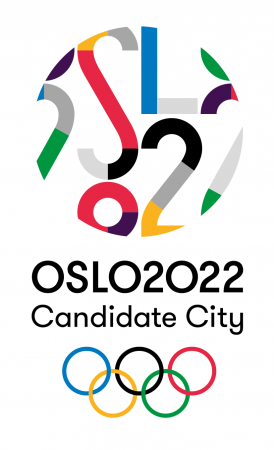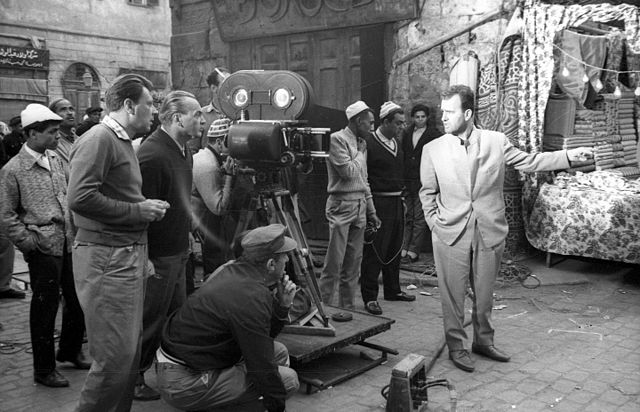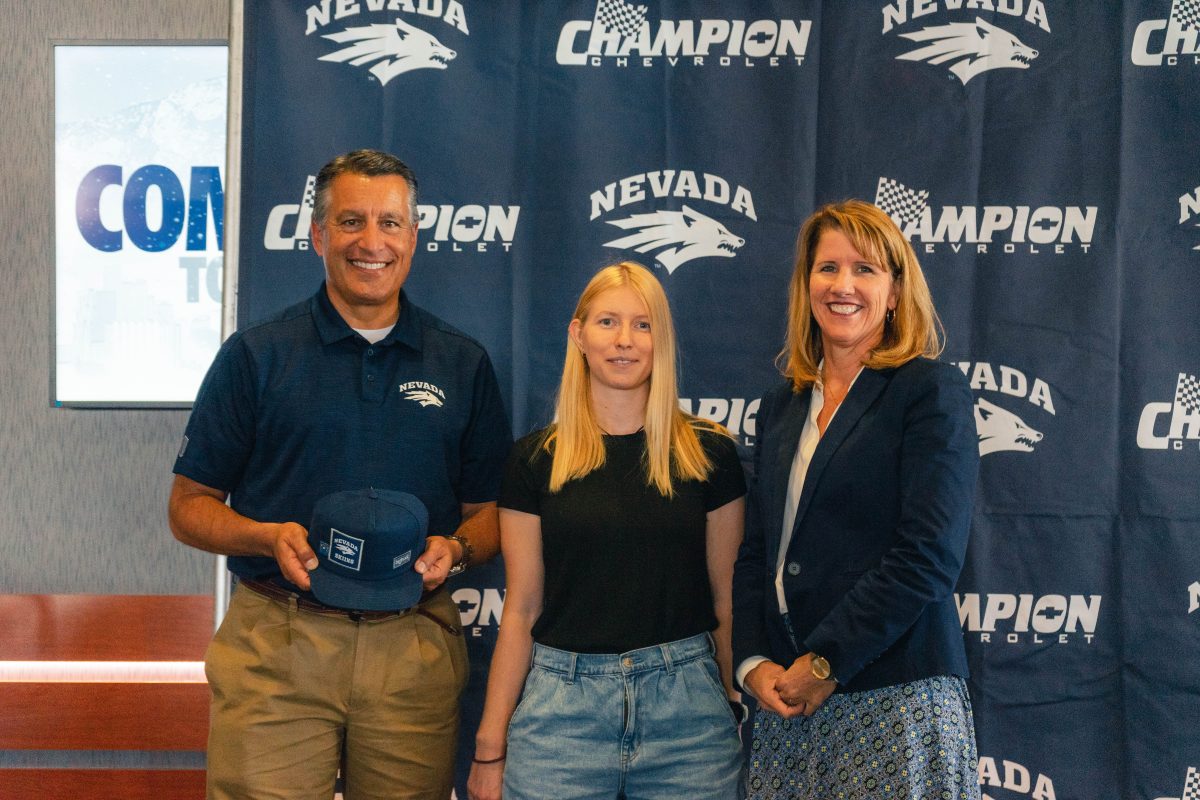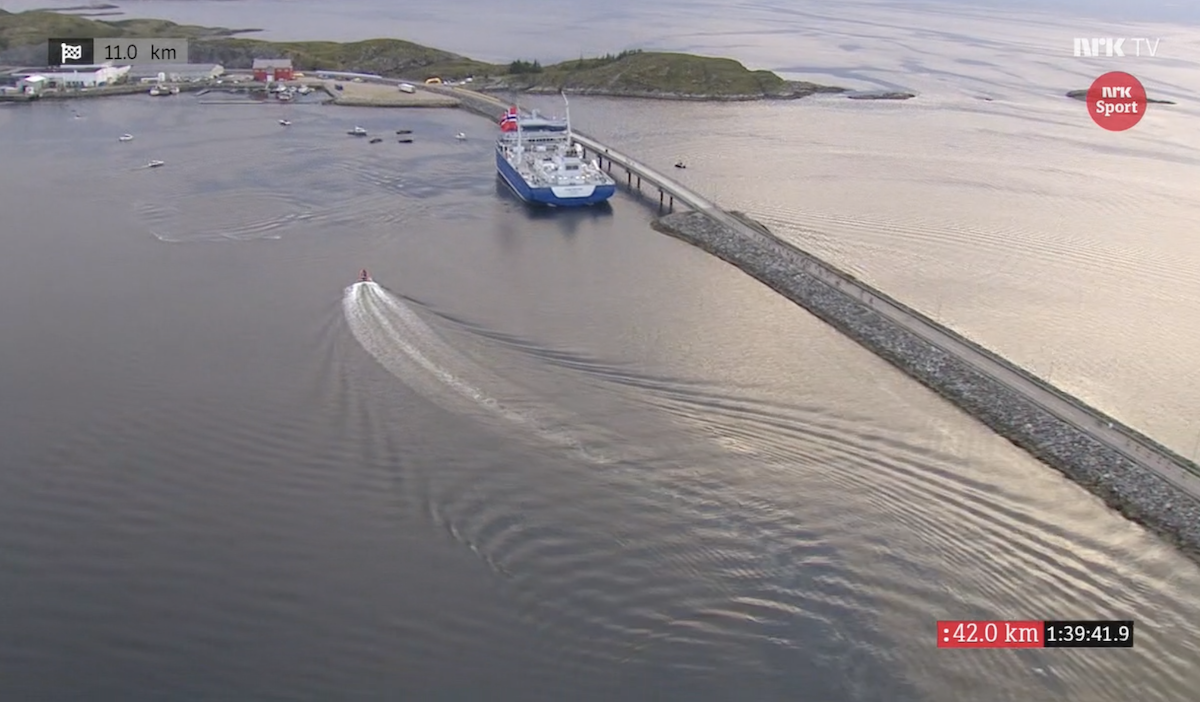
Norway did not want to host the Olympic Winter Games – perhaps the US can?
About the author: Born in Norway, John Aalberg moved to the U.S. and raced collegiately at the University of Utah, where he was a two-time, 15-kilometer NCAA champion in 1984 and 1985. He became an American citizen in 1992, just in time for the 1992 Winter Olympics, and represented the U.S. at the 1994 Olympics as well. Aalberg won the Great American Ski Chase three times, and leading up to the 2010 Winter Olympics, he was the nordic director and venue general manager at Whistler Olympic Park in Vancouver, B.C. Aalberg also served as the sports director and venue manager at the 2011 FIS Nordic World Ski Championships in Oslo, Norway.
From 2011 to 2013, he was sports-and-events director at the annual Holmenkollen World Cup, overseeing men’s and women’s ski jumping, nordic combined and cross-country competitions in Oslo. Also in 2013, Aalberg was a senior-sport consultant tasked with assisting the organizing committee of the Lillehammer 2016 Youth Olympic Games.
Most recently, he was senior consultant to the Oslo Bid Committee for the 2022 Olympic and Paralympic Games, advising venue, programming and sport design, while coordinating with the International Olympic Committee (IOC), international and national sport federations, and developing Paralympic concepts and programs. Oslo withdrew its bid on Oct. 1. In this guest editorial, Aalberg, who was inducted into the Intermountain Ski Hall of Fame last month, explains why.
***
Introduction

Norway last week missed the opportunity to showcase their country and show to the World why the Olympic Winter Games remains the ultimate goal for most winter athletes. As a catalyst for continued pursuit and recruitment into winter sports in all ice- and snow-clad countries, it represents perhaps the most exciting thing that can happen, especially, one might think, in the cradle of cross-country skiing, Norway.
After almost 3 years of bid preparation work, and nearly $US 30 million expenditure, the current conservative government stopped the Olympic bid process, claiming the overall Games cost would be too high.
Norway became the 6th country to exit the 2022 Games bid process, after Switzerland, Germany, Ukraine, Sweden, and Poland one by one withdrew during the last year or so. Each country seemed to have different reasons, but it was a big surprise that Norway, the country with most Olympic Winter Games medals, would not want to host their favorite winter sport events.
The International Olympic Committee, IOC, immediately stated that Norway missed a great opportunity, and blamed poor communication at many levels in the Norwegian process for causing the government’s decision. Missing the opportunity to hold the Games in a traditional winter sports country seemed a hard pill to swallow for IOC. The 2014 Games in Sochi, the 2018 Games in Korea and the 2022 Games now in China or Kazakhstan can all be justified as an ambition to expand wintersports to new markets, but it is important for the Olympics to “go back to the roots” regularly to not forget its original culture.
Why did Norway choose to pull out, and is it fair to point the finger at IOC as many in Norway now do? What can future bid cities and IOC learn from this?
Background

After a very successful FIS Nordic Ski World Championship in Oslo in 2011, the Norwegian Confederation of Sports decided to start the 2022 Olympic bid process. It gained support from all its member sport federations and asked Norway’s capitol, Oslo, to become the host city. The City of Oslo accepted and started the painstakingly thorough process of scoping and budgeting every detail of the Games. Such a process is required by the Norwegian Government for any national project of this magnitude and cost.
In short, over 150 staff and consultants spent over 1.5 years on this work, and delivered an initial bid application to IOC in March 2014, with a technical plan and detailed budget far beyond any other bid city has done before. In comparison, the competing bid City of Krakow, Poland, hired a 12-person consulting firm for 2 months to do the equivalent bid application.
Contrary to most past Olympic Games host organizations, the Norwegian bid’s planning project was conducted by a City Government department, and not by a non-profit bid organization. Also contrary to past Games, the prepared budget included expenditure of all semi-related city infrastructure projects, legacy venues, national security costs, private investments, etc, along with the Games operational expenditures. Normally, permanent city and national legacy infrastructure projects have not been considered as part of the Olympic Games’ organizer’s costs, but rather a national task.
The total estimated cost for the 2022 Games in Norway was approximately $US 5 billion (not including any income). On October 1, the Government decided not to provide financial guarantee for this, prompting Oslo City to withdraw its bid.
Why did Norway pull out?
Social Democracy
Norway is a unique country and culture in many ways. It is per capita the richest country in the world, one of the safest countries in the world, and is a small country, known for its efficient and smart government. The social-democratic governance is successful and the 5 million population live by democratic values in a flatly structured society. This means that everyone has the right to an opinion (and most people have strong opinions about most issues); that the typical US vertical management structures are not common in most workplaces; that both income tax and social benefits are high; and that the population is actively involved in governance issues since they strongly feel it is “their” money the government is spending.
In the last decades, Norway has led a prominent district policy, financially supporting and encouraging businesses and communities in the outlying districts along its entire coastline.
The above might partly explain why the majority of the Norwegian population was against hosting the Games, when it came down to it:
- Although most people love winter sports, the majority value grass-root over elite sports, and want money for venues and sports to be spent in communities along the entire country, not just in the capitol city of Oslo
- Many people were afraid that government money would be wasted on an Olympic 16-day elite party, rather than being spent on hospitals, new roads etc. in their local communities
The power of media
Compared to the rest of the world, there are very few “real” problems in Norway. Some immigrants call it “Disneyland” — the place seems too good to be real. In such a small and politically active place, tabloid media, supported by political parties, have taken root and become very powerful. In the recent Olympic debate, this was obvious by the way the populist newspapers only published half-truth arguments on both sides, but especially on the ‘no’ side. For example, they published that IOC asked for 5-star hotels with 24-hour room service, but left out that IOC was paying for this themselves.
The largest newspapers sided against the Games, and several of the key journalists had a goal of “getting the IOC members,” who in their minds did not seem to live by democratic values. Media also used self-acclaimed experts, although many of those “experts” had no Games experience other than having been Games spectators, guests or readers of Wikipedia or dubious research documents.
These journalists and experts did not take the time to try to understand the main goals of IOC and their member organizations, or the real composition of the Games organization. Misunderstood IOC demands were mostly directly copied from technical IOC manuals written a decade ago. Media did not listen to the argument that those manuals should in practical terms be regarded as cookbooks and helpful how-to manuals for all Olympic organizers. Insignificant details became major arguments, for example ridiculing the fact that IOC describes how to be a good host, what temperature to set in meeting rooms, what furniture to use, suggesting color on cars, etc. In short:
- One-sided coverage in the populist media convinced the majority of the population that the Games and IOC were not governed by democratic values
- IOC Games documentation and manuals do not clearly describe and differentiate between requirements, and “helpful hints,” thus making IOC seem overly demanding, inflexible and undemocratic.
Organization, communication and marketing skills
The arguments in favor of hosting Olympic Games are not covered in detail here, but past Games organizers, such as Salt Lake City 2002 and Vancouver 2010 have claimed that their Games created many benefits, including:
- an enormous regional and national pride and social collectiveness during the year of the Games
- a significant economic stimulus due to infrastructure and Games projects for 10s of thousands of jobs in the years leading up to the Games
- increased tourist revenue and skier visits in the years following the Games
- a palpable legacy of venues, sport recruitment and participation, event hosting skills and international marketing advantages
Such arguments barely surfaced in the Norwegian debate, due to a bid project with unclear marketing and communication roles. The project was set up with two equal partners, the City of Oslo bid department and the National Confederation of Sports, with two strong and stubborn CEOs who did not agree on the process, and no board of directors to give directions and clarify roles and responsibilities. The two partners came from two different cultures; the City group was used to inter-city political processes but had no sport experience, while the sport group claimed to have Olympic expertise but lacked operational Games experience. The setup is a classic organizational mistake, and one that locked the entire project and prevented effective decision-making, efficient marketing and communication, and proper use of resources. In summary:
- Poor organizational setup and leadership caused the project to be inefficient due to unclear roles and responsibilities, and resourceful people and experience within the bid team were not used to their potential
- Not using advisors with operational bid experience and arguments from prior successful Games prevented the communication of a solid vision and platform and eroded the initial base of support among the Norwegian population
Conclusion
IOC requires the national government of the bid country to guarantee the entire Games cost as if no income (i.e., no spectators or sponsors appear) is realized. This means that governments (with their transparent regulations) become a majority partner in a Games’ organization.
In the end, for Norway’s Olympic dream, the governing party pulled the plug, perhaps to save itself from future problems due to fractions in its own coalition. However, they also knew that their own processes and laws (according to EU/EØS regulations and laws) would not support some of the demands that IOC would want to include in the Games hosting contract, especially in terms of exceptions to labor rules, tax rules, and sponsoring-and-tendering processes. IOC must be aware of this, and its “Olympic Agenda 2020” reform project will likely look at alternative organizational and financial options.
The IOC reform project will likely take some years, and in the meantime, the continued success of the Olympic Winter Games might be in jeopardy. Can the US be the solution for IOC and the Olympic Winter Games? Private and sponsor funding in the US is at a level far above European countries, the marketing and communication skills likewise. Salt Lake City’s venues from 2002 are still (almost) Games-ready, and the city infrastructure superb, so the Games would likely be a moneymaker instead of a government and taxpayer burden. I would say — go for the 2026 Winter Games in Salt Lake City!




6 comments
T.Eastman
October 14, 2014 at 12:18 pm
John makes a good case for the “organizing committee” model.
halvard
October 14, 2014 at 2:20 pm
I am a Norwegian (currently living in Seattle), I am a BIG fan of winter sport, and I an happy that Norway said NO to the IOC.
What is hard for people like John to understand is that for Norwegians IOC is the Olympics. And the Olympics is not all that.
Norwegians do not like pompous old grumpy men that have a questionable attitude regarding corruption, democracy and doping.
Why should Norwegians use tax payer money to make IOC richer? If the olympics is such a good investment, why does IOC demand a economic guarantee? IOC business model is simple, you privatized profit and socialized loss. The profit goes to IOC, and the tax payers in the host country have to pay the true cost of the games, infrastructure and all the costs that will come the years after the games.
The truth is, Norway did not have a olympic dream. Most Norwegians support winter sports, but do not want to have anything to do with IOC. This is what is hard for John to understand. For Norwegians IOC is the problem. Asking the king to pay for their party is nothing but pathetic and is telling how they think of themselves.
Best of all was the reaction from IOC to the Norwegian no. It was like a teen age boy that got turned down by the hot girl in HS and then shouted back “I do not like you anyway”. But it was good to see the true IOC out in the open. An organization desperately seeking a country with human rights and democracy to like them. If IOC wanted to be liked in Norway, their media strategy has to change. Looking desperate, bitter and grumpy is not a good strategy.
John, if the olympics is all that and id dealing with the IOC is so easy, why are all the cities dropping out? According to IOC they will shower a host city with money, but the truth is that only 2 cities are left, all the good ones are gone.
IOC needed Oslo2022, but Norwegians think the IOC is that old creepy uncle you find at any weedings, the one no one wants to dance or talk with.
John Forrest Tomlinson
October 14, 2014 at 9:02 pm
“‘But it was good to see the true IOC out in the open. An organization desperately seeking a country with human rights and democracy to like them.”
Good point.
Also, Aalberg is probably mistaken in saying Norway is the world’s richest countries per capita, It is among the richest, but not probably not the top.
tclaynm
October 15, 2014 at 3:14 pm
Very interesting piece here. There is a lot to be learned from this in several areas. Probably the most interesting aspect of this piece, and the rebuttal by Halvard from Seattle, is the rift between attitudes of the Norwegians toward the “Ivory Tower” IOC organization people and the demands of the public money needed to fund such a monumental project. I’m a 100% born-and-raised patriotic American, but I have to agree with the attitude of the Norwegians toward the IOC aristocracy. Of course, I do work for a municipal government that serves an area that is home to a mostly federally-funded national laboratory, so I tend to side with the sometimes conservative “socialist” ideals of where government money should be spent. In other words, if I had to pay the taxes that they do in Norway, then I would give the finger to the IOC with their overly extravagant ways and demands. If they want the Olympics to be in Norway, then the Norwegians should have the authority to say how they’re funded, managed and hosted.
All that being said, I do think that SLC would be a good venue due to the points presented by John Aalberg. It makes fiscal sense and should be a model for other Olympic Games. It just seems too crazy to continue the “one-up showmanship” that seems to be going on with each and every set of games. It’s too many wasted resources for countries that should be looking after the people in their own country who really need the help.
Yes, our American model is one of capitalistic and commercial sponsorship money that can be more easily approved for such endeavors as the Olympics, where commercialism seems to be the driving factor nowadays and they are the ones with the most to gain. The innocence of the spirit of unified sportsmanship from days of yore is gone, and the IOC likes the big-time experience that only the biggest companies in the world can afford. I don’t think that very many of the potential host cities can live up to that…
At any rate, the reform needs to happen much more quickly if the Games are to be made sustainable.
highstream
October 17, 2014 at 1:46 am
I find John Aalberg’s comments anti-democratic elitism and substantively disingenuous (does Oslo really need more 5-star hotels, John?). For a good look at what the Olympics are really about economically and financially, take a look at https://finance.yahoo.com/news/nobody-wants-host-2022-olympics-174716677.html.
Politically, the Olympics is an orgy of flag-waving political nationalism, demagogically playing on the heartfelt popular desire that the “people of the world” be able to get together. More realistically, it’s an expression of the real state of international relations and economic exploitation. No accident that the U.S. cities are always so gung ho to win the bid.
Tim Kelley
October 19, 2014 at 3:09 pm
The one main thing I learned as an Ivy league economics major (and why I chose not be an economist) – is that economic studies can justify any lie, any scam, any fallacy and, in the case of the Olympics, any claim that there will be a return on a huge public investment. Thankfully, since the 2008 economic crisis that slammed the US and Europe, some people are waking up to the fact that studies, reviews and ratings can often be a crock of shit. Some people are actually getting smarter when it comes to spending and investing money. Norway is now apparently in this group of smarter people, based on their rebuke of the financial black hole called the Olympics.
It seems that Mr. Aalberg may have spent too much time deep in the trees to see the forest. Being involved intimately with an organization can often blind you to the big picture. The big picture is economics, not media gossip as discussed in this article.
To continue with the tree analogy – think of the Olympics as a tree. It started out small and grew to be strong and robust. But then people started dumping truckloads of fertilizer (network money) at its base. And the tree grew too many new branches (added endless new sports), the core rotted (IOC corruption), it got shot full of holes (global security concerns) and the tree is now rife with disease (doping, cheating).
Now no one wants this scary old tree in their back yard. And the winds of change are about to blow it over. So be it, no tree stands forever.